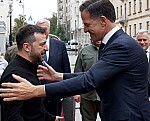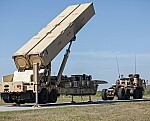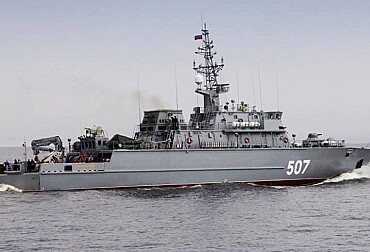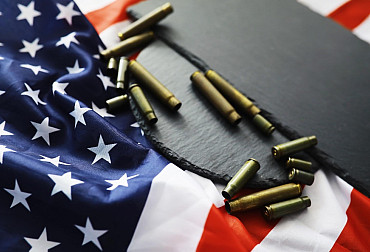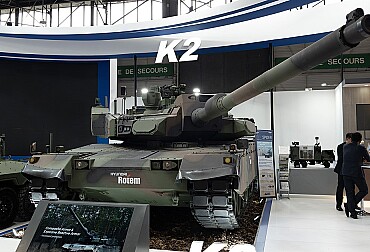Gen. Jiří Šedivý: Ukraine needs a functioning Foreign Legion supported by the West
We bring you an interview with the former Chief of the General Staff of the Czech Armed Forces, General Jiří Šedivý. As is his custom, he describes the reality of the conflict in Ukraine and the state of Ukrainian and Russian troops without exaggeration. General Šedivý discusses, among other topics, the fundamental mistakes made by the Ukrainian side, the futility of the Kursk operation, and the involvement of North Korean troops, which, in his view, does not constitute a significant escalation.

The third anniversary of Russia's invasion of Ukraine is approaching, and the situation on the eastern battlefields is not looking optimistic for Ukrainians. Western aid to Ukraine is dwindling and inconsistent. Does the West even want Ukraine to defeat Russia?
Of course, the West wants Ukraine to win the war with Russia. But even the West has certain limitations, such as political ones tied to the functioning of the North Atlantic Alliance and concerns that a misstep could lead to escalation and potentially drag NATO into the conflict. Such fears are perfectly legitimate and logical.
We must also consider economic and material limitations. There is constant debate about European industry’s inability to match Russian production capabilities, but we must remember that Europe is not in a state of war. European economies have not been converted to war production as seen in Russia; we are still operating within a competitive, peacetime environment. The notion that someone could simply mandate the production of a million bullets annually, and that everyone would comply, is not realistic. These, I believe, are the main reasons why Western aid to Ukraine remains limited.
The Ukrainians have long requested permission to strike deeper into Russian territory with Western-supplied weapons, but so far without success. Will the West finally grant Ukraine this capability? (This interview with General Šedivý took place before U.S. President Joe Biden’s decision to allow Ukraine limited use of U.S. long-range weapons on Russian territory, editor’s note.)
It’s important to remember that Ukraine also possesses its own means to strike far deeper into Russian territory than the 500 kilometers or so that the proposed Western weapons would reach. Recently, Ukraine unveiled a new ballistic missile with a theoretical range exceeding 500 kilometers. Ukraine is not entirely defenseless; of course, it needs many more such weapons, and we should finally acknowledge Ukraine’s right to self-defense. If Ukraine receives these capabilities, it should have the right to use them. However, this remains a political debate, and a political decision will likely take time.
We must also consider that Ukraine has limitations in human resources, with a significantly smaller population than Russia. Ukraine has also made mistakes and decisions that have exacerbated this deficit.
The United States not only faces challenges in Europe with Ukraine but also has pressing issues in Indochina and the Middle East. These areas demand more urgent attention than Ukraine.
In other words, is the conflict in Ukraine a secondary battlefield for the U.S., with their primary focus on China? Weakening Russia is merely a bonus?
Yes, but this does not imply that the U.S. wants to prevent Ukraine from winning and merely keep the conflict at a level that weakens Russia. U.S. politicians openly state that Ukraine is primarily a European issue; it has been so from the beginning, and Europe has not resolved it effectively.
Recently, Ukrainian President Zelensky expressed frustration that only about 10% of the promised U.S. aid from April has been received. This is quite a problem…
President Zelensky noted that this delay is not due to political decisions but to practical and bureaucratic hurdles. However, the impact is the same. On the other hand, the aid was never intended to be provided all at once. The U.S. is addressing multiple crises, not only Ukraine. President Zelensky can be very impatient. Among Ukraine's current difficulties, last year’s delayed mobilization and poorly planned counter-offensive are significant factors. This year’s limited mobilization and the questionable Kursk offensive also contribute to the challenges Ukraine faces. The fundamental issue, however, is Ukraine’s limited number of soldiers and their diminishing morale. Many early volunteers are either exhausted or no longer in service.
Has the change in the Ukrainian military leadership affected Ukraine’s strategy against the Russian aggressors?
Last autumn, the dismissed General Zaluzhnyi announced that the counter-offensive had failed to meet its objectives and that Ukraine would need fundamental changes to pursue a different approach. I believe political pressures significantly influenced the planning of last year’s counter-offensive, affecting military decisions. General Zaluzhnyi stated that he needed an additional half a million troops, but he was eventually replaced by General Syrskyi, who seemingly accepted the reduced mobilization numbers under political pressure led by President Zelensky. The operations in the Kursk region reflect this influence. No strategic-level commander would have launched such an operation while losing ground elsewhere without having substantial reserves beyond those deployed to Kursk. Clearly, Ukraine exhausted its available reserves there.
The Ukrainians have given varying reasons for the incursion into the Kursk region. Do you consider it a fundamental, strategic error?
Under the circumstances, it was a strategic mistake. Had it been launched at another time, with additional forces available to counter Russian attacks, it might have made sense. Zelensky himself initially struggled to explain why this operation took place. Later, multiple justifications emerged, indicating the operation may have been halted because it lacked clear purpose. In my view, it was a gamble.
On the other hand, the Ukrainians still hold a substantial part of occupied Russian territory…
Ukraine controls roughly half of the territory initially captured. However, the operation failed to achieve its objective of drawing Russian troops away from other areas. This goal was only partially met, and the Russian offensive continued unabated. Given the timing, I doubt Ukraine will be able to exchange this territory for areas currently under Russian control. The Kursk operation seems to have been poorly timed and executed.
North Korean soldiers are reportedly stationed in the Kursk region. In your opinion, does it represent a significant escalation by Russia to involve a foreign army in the fighting? Isn't it a bit desperate of Russia to deploy North Korean soldiers?
It could represent a significant escalation if these soldiers enter Ukrainian territory. However, they appear to be deployed only within Russian territory. Is Putin desperate? That’s how Mark Rutte, the new NATO Secretary General, recently described him. In any case, while Putin is a war criminal who must be held accountable, he is certainly not desperate. He has managed to overcome all the crises Russia has faced in Ukraine, beginning with the initial setbacks immediately after launching the aggression. At that time, it was clear that Russian forces were completely ignorant of the situation in Ukraine, not only unaware of the Ukrainian troops' readiness but also lacking understanding of the political leadership and the resolve of the Ukrainian people. The Russians were losing even during Ukraine’s first counter-offensive in 2022. However, they managed to recover and effectively devastated Ukraine’s last major counter-offensive in 2023. A series of sanctions was imposed on Russia, and many assumed that the country would collapse. Even so, Putin managed to withstand them, and the impact of the sanctions has significantly diminished. More recently, we have seen Russia’s successes within BRICS. Russia’s isolation, as envisioned by the West, simply hasn’t materialized. Clearly, it must have been a shock to Putin as well when Ukrainian forces entered the Kursk region. Yet, in the end, he reframed the situation, claiming that Russia was attacked and must defend itself, and Russian society remained calm. They halted the Ukrainian advance and blocked a significant portion of Ukraine’s elite troops in that region. And now they have deployed North Korean (DPRK) troops. We shake our heads in surprise at this development. However, Russia has not violated any international agreements by using North Korean troops on its own territory under an interstate treaty.
Still, the fact that Russia is deploying foreign soldiers on its own territory, whose quality and readiness are questionable, also suggests that Russia may be experiencing a significant deficit in the number of combat-ready soldiers—regardless of what we may think about the Russian casualty figures reported by Ukraine.
I am skeptical of the casualty figures provided by Ukraine. Unfortunately, Putin is still able to replenish troop numbers with sufficiently paid volunteers, and Russia has not yet moved forward with a second mobilization, likely due to its political sensitivity. I have long argued that underestimating Putin is a mistake. How long North Korean soldiers will last in combat, I don't know, but I certainly wouldn’t underestimate them. Although these soldiers may lack combat experience, they are certainly well-trained.
If the Ukrainians are, at least for now, refusing to mobilize further, the question remains: why aren’t they recruiting more troops from abroad?
When the Russian aggression began, the so-called Foreign Legion was formed. According to Zelensky, Ukraine had about 20,000 such soldiers. But how many foreign fighters are still in Ukraine today? Wasn’t that number already an exaggeration? Current reports suggest there are, at most, around 1,500, and they are not organized as a single, compact unit but are instead dispersed across various formations.
If we in the West are unwilling to send regular troops to Ukraine, then we should create conditions that allow volunteers who want to fight to do so with minimal restrictions. Efforts were made in the beginning, but we did not clearly establish: These are not NATO soldiers; they are volunteers in the Foreign Legion. France has experience with its own Foreign Legion and could have suggested, Let’s create a Foreign Legion for Ukraine. Currently, promising reports from Poland indicate that around 700 Ukrainians have enrolled in a training program and begun their training there. However, this is a small number of soldiers, and the 35-day training period is very short.

Europe has mechanisms to support such initiatives, and this is not unprecedented. Unfortunately, aside from Poland, no other European nation has taken a structured approach. While volunteers are free to enlist individually, this approach is inadequate. In some large European countries, particularly Germany, the belief persists that the war will end, and Russia will again be a major economic partner.





